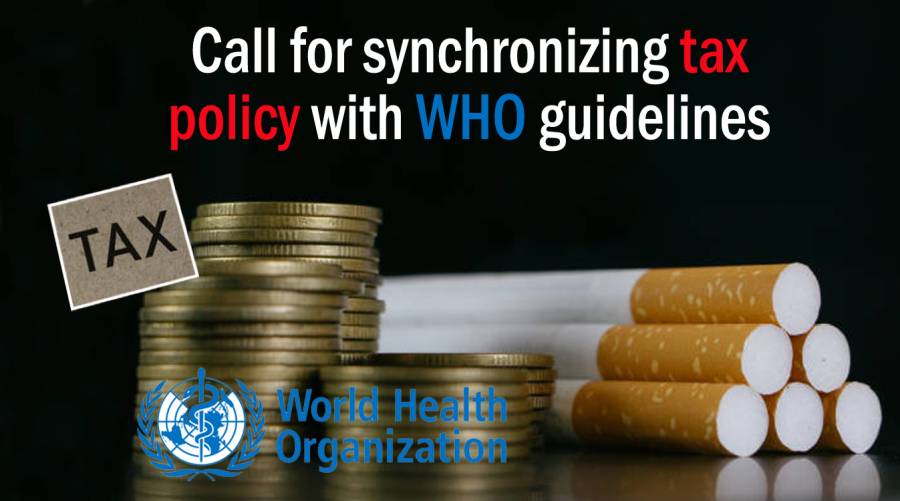Call for synchronizing tax policy with WHO guidelines

ISLAMABAD: The Islamabad-based think tank Capital Calling has called for aligning the country’s cigarette taxation with World Health Organization (WHO) guidelines, demanding that tobacco companies should be held accountable for the health and environmental damage they cause.
Meanwhile, a report from the Pakistan Institute of Development Economics (PIDE), says that Pakistan ranks among the world’s 39 leading consumers of tobacco, with an estimated 24 million active smokers and users.
It says that the new government is making efforts to synchronize the health and finance ministries efforts to combat the menace of smoking.
The report says that cigarette prices in Pakistan are markedly lower compared to neighboring countries. The PIDE report links lack of policy making on tobacco to the huge tax revenues generated by the industry.
Though evidence suggests that higher tobacco taxation can effectively deter consumption, Pakistan continues to lag in this crucial area of combating tobacco use.
The abolition of the third tax tier in 2019, which hindered the tobacco industry's ability to market cheaper cigarettes through tax evasion, resulted in a notable increase in tax contributions, reaching Rs120 billion within a year. This underscores the potential for impactful policy changes to yield significant benefits.
However, reluctance to reform tobacco tax policy persists, partly due to the government's incomplete assessment of smoking-related health and social costs. Flawed benefit-cost analyses prioritize revenue over public health outcomes, hindering progress in this critical area.
With smoking prevalence in Pakistan at 8.8 percent and cardiovascular diseases emerging as a primary health concern nationwide, particularly in urban areas and provinces such as Punjab and Khyber Pakhtunkhwa (KP), the need for comprehensive policy action is urgent. The direct and indirect costs associated with smoking-related illnesses also necessitates addressing this public health challenge.
Prof Muhammad Zaman of Quaid-i-Azam University calls for a holistic view of smoking hazard and urges policymakers to resist the influence of cigarette companies on governmental decision-making processes.
Advertisement
Trending
Popular
Hair loss: Discovery uncovers key stem cells that could reverse ...
-
Broccoli sprout compound may help lower ...
11:31 AM, 25 Feb, 2025 -
Gas Pain vs. Heart Attack: How to tell ...
09:00 PM, 22 Feb, 2025 -
Coconut oil supplement shows promise ...
08:00 PM, 20 Feb, 2025 -
Normal vitamin B12 levels may still ...
05:00 PM, 19 Feb, 2025



